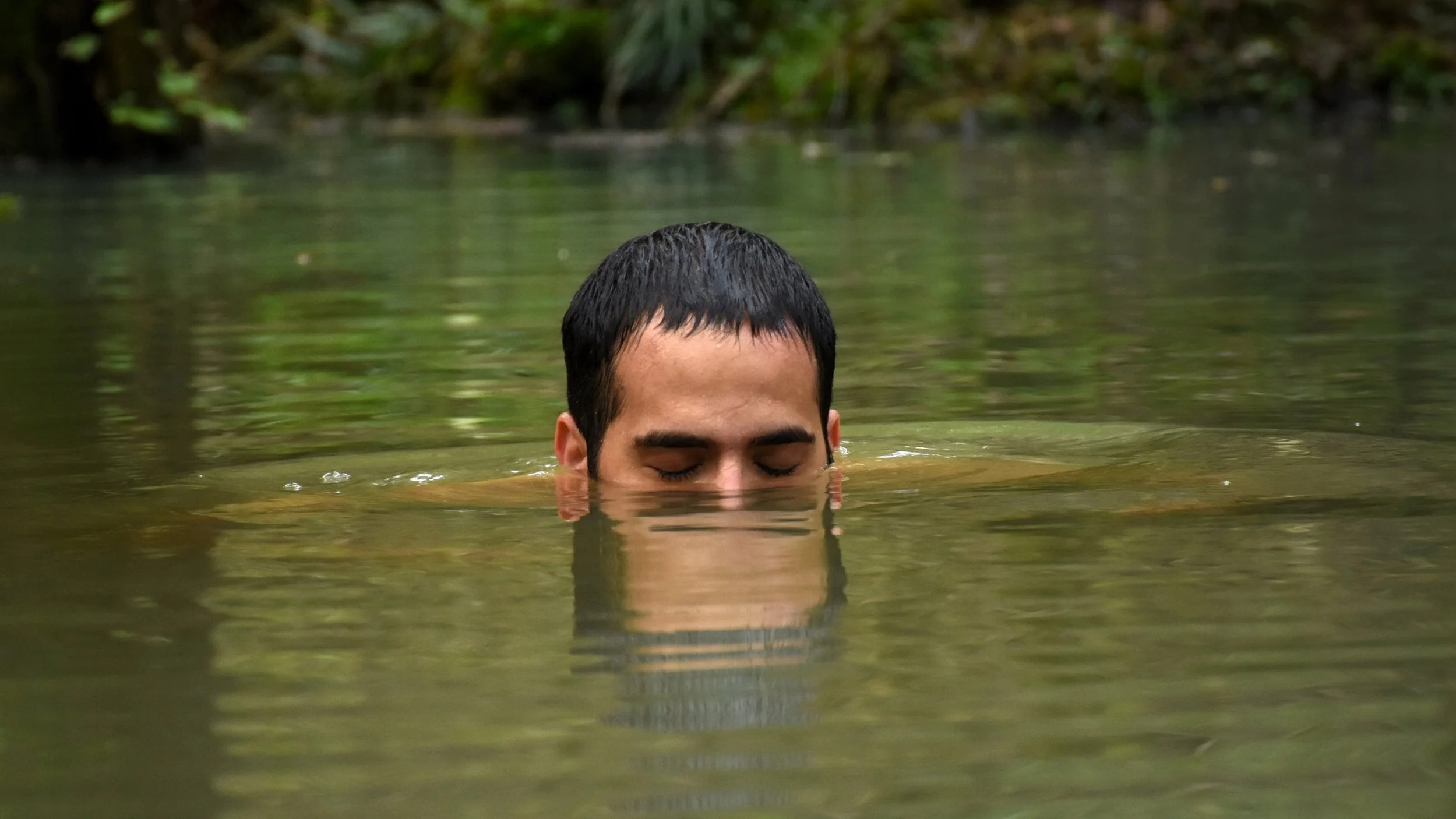There Is No Evil
Mohammad Rasoulof's portmanteau Iranian drama confronts the death penalty - and won the Golden Bear at Berlin.
Like the somewhat better known Jafar Panahi, Mohammad Rasoulof is a distinguished filmmaker who has earned the wrath of the authorities in his home country, Iran. Anyone who saw his 2013 work Manuscripts Don't Burn, a story that featured state-approved killers, will understand why, living in that country, Rasoulof has been subjected to restrictions banning him from filmmaking. This latest feature of his, There Is No Evil, which has four distinct sections, was made that way for a reason. It made it possible to give the impression that Rasoulof was filming four short pieces, a procedure that reduced the risk of shooting becoming known and then being prohibited from continuing.
Now put together and presented as a single feature, Rasoulof’s film begins with what, if judged on its own, could be acclaimed as a mini-masterpiece. It seems virtually plotless but feels wholly real and compelling as it shows us one day in the life of a man, Heshmat (Ehsan Mirhosseini), who, often working a night shift, looks after his family and cares for his aging mother. His young daughter can be aggressive, his wife forceful, but Rasoulof is a writer/director able to bring them fully to life so that we are absorbed by their day-to-day activities (shopping, collecting the man’s salary, picking up the daughter). There is an unexpected conclusion to this piece, but up to that point Rasoulof gives us a masterly portrait of everyday life.
The film’s second section moves to fresh ground by being the story of a young conscript (Kaveh Ahangar) desperate to avoid what he has been told to do. This episode and the two subsequent ones find different ways of approaching what now emerges as the central theme of the film as a whole, the fact that those doing military service can find themselves ordered to carry out executions. Some may be reluctant to act this way out of a basic reluctance to take another life; others may question if the accused who face death deserve that fate or are instead victims of state persecution.
In effect There Is No Evil plays as a portmanteau film and the sections vary in quality. The first piece sets a tone of realism and authenticity epitomised by it being presented without a music score but its successor feels unreal by comparison. First of all, the talk by this conscript and his companions comes over as set up so that the issues can be debated and then, when the youth seeks to escape, it plays like improbable fiction and at this stage Amir Molookpour’s music is very much to the fore. The third episode features another soldier doing military service (Mohammad Valizadegan) and in time it does get round to the key theme, but it delays doing so and the style of the filmmaking fluctuates. Only with the final episode set in the countryside (a location that yields splendid landscape shots) does the film recapture some of the realism that made the opening sequence so effective. It's not as good as that because the tale is drawn out a little too much but importantly this last narrative which might have emerged as highly melodramatic is not allowed to do so, that element wisely being kept well under the surface.
In total There Is No Evil is a very mixed bag and to give a meaningful rating to what comprises four separate pieces of uneven quality is difficult. But, if the second segment feels particularly misjudged, there is no denying the bravery of the work as a whole and you do get that opening section which I don't hesitate to call a masterpiece. One may wonder if the film really deserved the Golden Bear award at the 2020 Berlin Film Festival, but not to be generous towards this work would be inappropriate. Treating the subject matter at all required exceptional courage and Rasoulof is clearly speaking out as a true patriot ashamed by the present state of things in Iran.
Original title: Sheytan vojud nadarad.
MANSEL STIMPSON
Cast: Ehsan Mirhosseini, Shaghayegh Shourian, Kaveh Ahangar, Darya Moghbeli, Mohammad Valizadegan, Mahtab Servati, Mohammad Seddighimehr, Baran Rasoulof, Jilah Shahi, Pouya Mehri, Salar Khamseh.
Dir Mohammad Rasoulof, Pro Mohammad Rasoulof, Kaveh Farnam and Farad Pak, Screenplay Mohammad Rasoulof, Ph Ashkan Ashkani, Pro Des Saeed Asadi, Ed Mohammadreza Muini and Meysam Muini, Music Amir Molookpour, Costumes Afsaneh Sarfejo.
Cosmopol Film/Europe Media Nest/Filminiran-New Wave Films.
151 mins. Germany/Iran/Czech Republic. 2020. Rel: 3 December 2021. Cert. 15.


